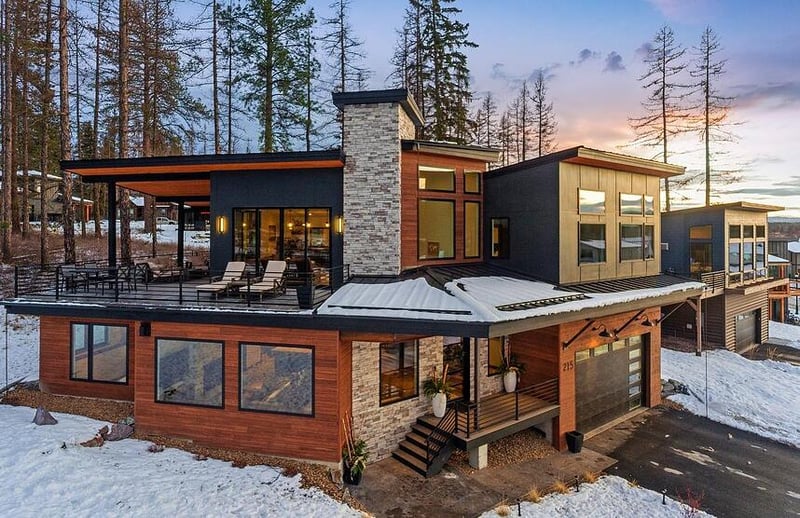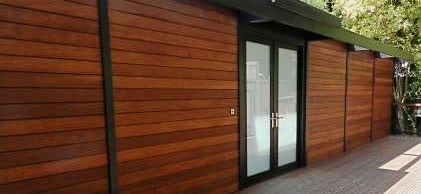
TRADITIONAL WOOD SIDING OPTIONS
When a high performance wood rainscreen system doesn't meet your project budget, there are other wood siding options to consider. Rainscreen systems have been in use for centuries. Why? because they are so effective at preventing rain, sleet, snow and moisture from getting into a home or building. And they also work great for getting the moisture out.
When your siding budget can't afford a higher performing (open joint, pressure equalized) rainscreen, don't fret. There are other installation options that can provide some of the key rainscreen benefits. A rainscreen system using furring strips (wood or other), may help you control your costs.
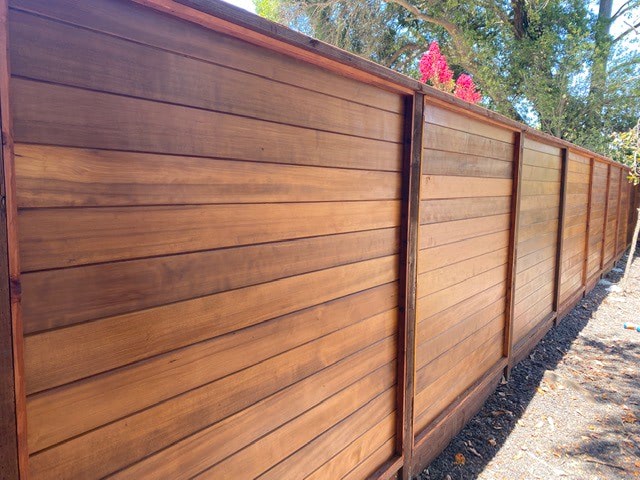
Tongue and Groove profiles work great for fencing and siding
Tongue and Groove Sidings (T&G) do not leave a gap between the siding boards. When you install them over a gap on your exterior wall, this is called a 'closed joint' rainscreen. You can still make it ventilate properly by leaving ventilation at the top and bottom of your wall. Siding vents, such as the Cor-A-Vent SV5, are available to allow ventilation at the top and bottom of the wall. They also work great to keep insects and pests out of your wall cavity.
Types of Wood Siding
Tongue and Groove and Ship Lap Siding Profiles are very popular
Here are some common shiplap and tongue and groove wood siding profiles. These siding profiles can be custom milled for your order in random length tallies. Best hardwood siding species available include Ipe siding, Garapa siding, FSC® Certified Machiche hardwood, and also Thermally Modified Hem-Fir softwood siding. Other wood siding species are also available.
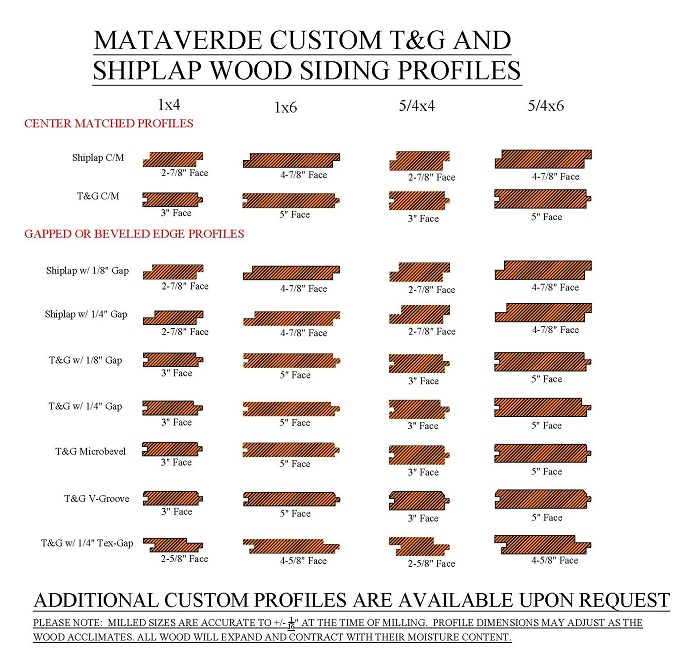
DOWNLOAD MATAVERDE CUSTOM T&G SIDING PROFILE SHEET
Other Custom Wood Siding patterns and profiles are available.
Please Contact Us and let us know what you need.
Pros' and Con's of T&G (Tongue and Groove) Wood Siding using Furring Strips:
PROS |
CONS |
|
|
|
|
|
|
Tongue and Groove ThermaWood Hem Fir siding, decking, soffits and trim
What is a Closed Joint Wood Rain Screen?
A closed joint rain screen is the most basic rainscreen installation method. It is called a 'closed joint' rainscreen because it leaves no space between the siding boards. There is no ventilation between the siding boards. It only ventilates at the top and bottom of each wall cavity.
Closed joint rain screens are a good rainscreen option - but not the best one. There are some benefits and some limitations. Please make sure this is the right rainscreen option for you before deciding.
How a Closed Joint Wood Rain Screen Assembly with Furring Strips Works:
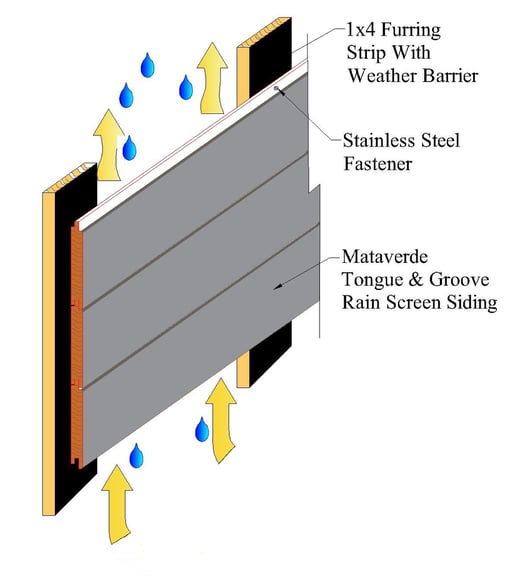
To be effective, a closed joint rain screen should allow for some back ventilation behind the siding, at the top and bottom of the vented wall area.
BENEFITS OF A CLOSED JOINT WOOD RAIN SCREEN ASSEMBLY:
If you’ve ever seen paint peeling off old cedar siding, it’s usually not the paint’s fault. Sometimes it is poor flashing. But most times it is excess moisture in the siding. Trapped. With nowhere to go and nothing to do – except rot.
The benefit of having any wood rain screen is that helps minimize the amount of moisture behind the siding. However, the better the rain screen design, the better the performance.
- Wood siding is naturally beautiful
- A closed joint wood rain screen allows for some back ventilation behind the siding (between the furring strips)
- This helps the siding to dry out (between the furring strips)
- It helps the building ventilate (but only between the furring strips)
DOWNSIDE OF A CLOSED JOINT WOOD RAIN SCREEN ASSEMBLY:
Wood furring strips keep the siding off the building envelope (outside wall). The ventilated air space between the furring strips is what makes it a rain screen. Without back ventilation, wood siding will rot.
Problems with furring strip assemblies:
- In a closed joint rainscreen assembly that uses furring strips - the furring strips themselves are the 'weak link'
- Furring strips restrict the back ventilation (air flow) into the area between the furring strips only
- The area behind the furring strips can trap moisture inside the building
- Wood furring strips can rot, especially if the moisture is trapped in them
Other limitations with a closed joint rain screen:
- A closed joint rain screen doesn't allow for any air flow between the siding boards.
- The only place a closed joint rain screen can vent is at the top and bottom of each rain screen gap (wall cavity)
Mataverde Wood Siding Species Options Available in Tongue and Groove and Shiplap Siding Profiles
Mataverde Custom Tongue and Groove siding (T&G) is available in all the wood siding species we carry. Learn more about wood siding species available here:
All Mataverde wood siding species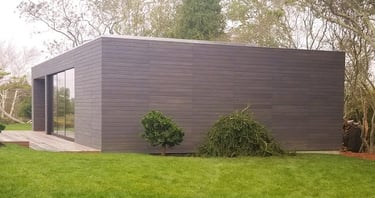
Thermally Modified Wood siding
Don't see the wood species you like? Contact us and let us know how we can help.
ARE THERE OTHER WOOD SIDING INSTALLATION OPTIONS?
Yes. There are several weather resistive barriers (WRB) that have 'built-in' dimpling or spacing that allow for air (and moisture) to move behind the siding. Any method that creates a break like this is considered a rainscreen. These types of products are particularly useful in arid and non-temperate climates.
Looking for siding ideas and some design inspiration?
Download the Featured Rainscreen Project Portfolio today:
RELATED:

